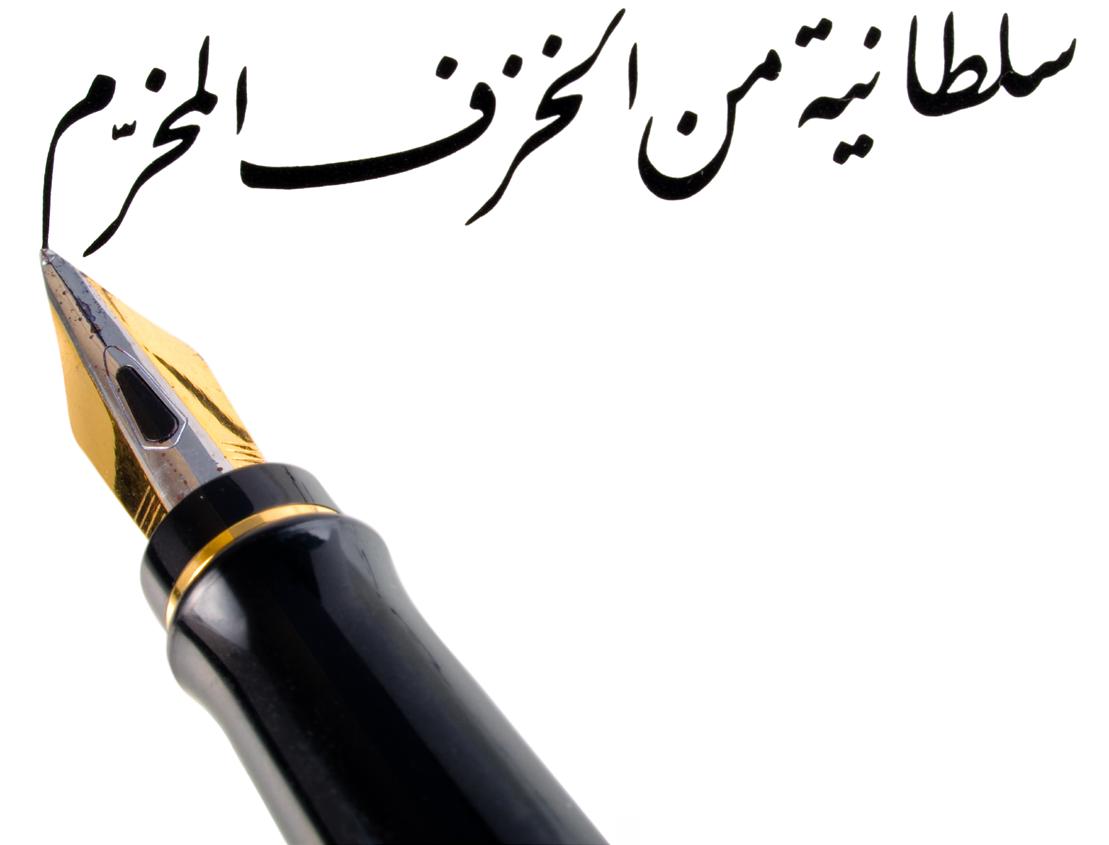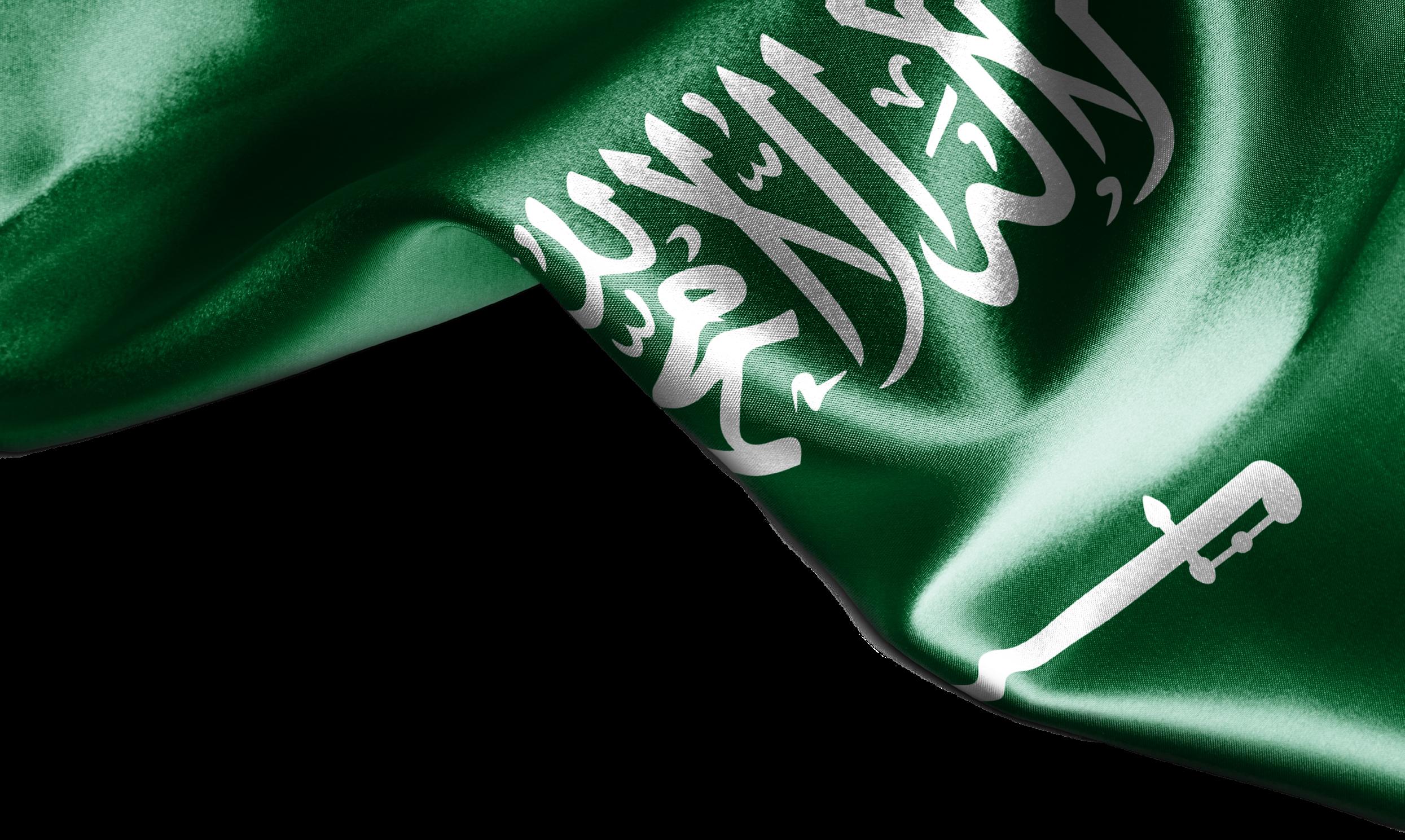

INSIGHTS FOR BRITISH MILITARY ADVISORS IN SAUDI ARABIA CULTURAL AGENCY AS STRATEGIC CURRENCY

The Centre for Historical Analysis and Conflict Research is the British Army’s think tank and tasked with enhancing the conceptual component of its fighting power. The views expressed in this In Depth Briefing are those of the author, and not of the CHACR, Royal Military Academy Sandhurst, Ministry of Defence or British Army. The aim of the briefing is to provide a neutral platform for external researchers and experts to offer their views on critical issues. This document cannot be reproduced or used in part or whole without the permission of the CHACR. www.chacr.org.uk
“Better to let the Arabs do it imperfectly than to do it perfectly yourself, for it is their Kingdom and their way.” – T.E. Lawrence, Seven Pillars of Wisdom (1935)
FEW postings in Defence Engagement rival the complexity and strategic importance of serving as a British military advisor within the Saudi Arabian Ministry of National Guard (MNG). The Kingdom of Saudi Arabia, defined by its unique tribal roots, Islamic governance, dynastic monarchy, and ambitious Vision 2030 reform programme presents an environment where operational success hinges not merely on military capability, but on cultural fluency, emotional intelligence, and deep interpersonal acumen.
This think piece distils critical lessons drawn from embedded British Military Mission (BMM) experience, offering both practical guidance and considered reflection for current
and future advisors. It explores the intersection of culture, geopolitics, and institutional transformation in shaping what effective military advising looks like in the Kingdom today and the future.
“Culture eats strategy for breakfast.” – Peter Drucker, The practice of Management (1954)
THE ‘RENTED’ FRAMEWORK: CORE CULTURAL REALITIES
Understanding Saudi Arabia’s operational context begins with decoding the cultural forces that shape it. The RENTED framework of Religion, Ethnicity, Nationalism, Tribalism, Economic factors, and Dynastic power structures captures the interlocking pressures that are ever present daily within the Kingdom and dictate tactical and strategic MNG decision making.
n Religion: Islam, specifically in its Hanbali and Salafi forms, is central to every facet of governance and military conduct. Advisors must be sensitive to
prayer timings, religious festivals like Ramadan and Eid, and the Qur’anic values underpinning discipline, leadership, and purpose. Demonstrating religious respect even in small ways builds credibility.
n Ethnicity and Nationalism: Saudi identity is proudly selfcontained, anchored in Arabic language and post-colonial sovereignty. Advisors must avoid any semblance of superiority or condescension. British personnel are respected when they show humility, curiosity, and willingness to learn from Saudi partners.
n Tribalism: Deep tribal affiliations underpin the loyalty of MNG personnel. Advisors must grasp these invisible networks of allegiance, influence, and rivalry. Missteps such as public criticism or exclusion of certain tribal representatives can damage trust irreparably.
n Economic factors: Oil revenues have created a welfare state model with guaranteed
AUTHOR Lieutenant Andy Blackmore Advisor, Officer Education and Training to The Ministry of National Guard – Kingdom of Saudi Arabia
government employment. This at times results in low urgency or weak personal motivation. Advisors should tailor projects and initiatives to emphasise collective duty, family honour, and national pride.
n Dynastic power: The Al Saud family is not simply a government it is the State. MNG’s raison d’être is to defend the dynasty’s integrity and continuity. Advisors who understand this gain insight into institutional priorities and unspoken red lines. Those that don’t, can be marginalised or even overlooked.
“Ibn Saud’s approach was deeply rooted in his profound understanding of tribal loyalties and traditional Bedouin codes of honour. His success in unifying the peninsula laid the foundation for a centralised monarchy that derived legitimacy not only from territorial control but also from its guardianship of Islam’s two holiest cities.” – Barnaby Rogerson, The House Divided (2015)
LANGUAGE AND LINGUISTS: STRATEGIC BRIDGES
Arabic is more than a language, it is the gateway to trust, respect, subtlety, and sincerity. Advisors assured in Arabic are far more likely to build enduring rapport and develop an apt ability to eloquently decode implicit feedback, typically rooted in Islamic complexities. However, even those with limited vocabulary benefit greatly from a committed interpreter.
Interpreters in the MNG are not just translators; they are cultural navigators. A good interpreter understands how to phrase observations without causing offence, how to shield an advisor from social snares, and how to advise on unspoken messages. The relationship between advisor and interpreter is essential for success, it must be based on trust, respect, partnership, and mutual learning.
Dress, greetings, humour, and even the timing of meetings benefit from interpreter insight. For example, in high context cultures like Saudi Arabia, a delayed meeting is not necessarily a sign of disrespect, it may reflect fluid hierarchy or unseen obligations. Interpreters help frame such moments appropriately.
“Religion is the gravity that commands your place within Saudi society.” – Karen House,
On Saudi Arabia: Its People, Past, Religion, Fault Lines, and Future (2012)
VISION 2030 AND MNG: THE CHALLENGE OF TRANSFORMATION
Saudi Arabia’s Vision 2030, led by Crown Prince Mohammed bin Salman (MBS), is arguably the boldest socioeconomic reform project in the Arab world. Its objectives, economic diversification, workforce transformation, and cultural liberalisation inevitably affect the Ministry of National Guard.
Advisors face the challenge of balancing cultural continuity with institutional modernisation. For example, the introduction of women into sectors previously closed to them, or the shift from rote instruction to critical thinking in training curricula, must be handled with cultural intelligence. Advisors should not drive reform but support it in ways that align with Saudi values and UK Defence capabilities.
Professionalising the MNG also involves joint exercises, procurement reform, and leadership development. British advisors contribute by delivering officer education, mentoring trainers, and refining operational doctrine. Yet these must be grounded in Saudi vision 2030 ideas, not imported wholesale.
“The value of cultural insight is critical. Successful military
cooperation in Arabia demands a careful balance of respect, subtlety, and adaptability, qualities essential for any foreign military advisor in Saudi Arabia.”
–T.E. Lawrence’s Seven Pillars of Wisdom (1935)
SHAME, WASTA, AND FEEDBACK: NAVIGATING THE INVISIBLE TERRAIN
In the West, criticism may be seen as constructive. In Saudi Arabia, it can invoke shame (‘ayb), a socially discrediting emotion. Maintaining face is a critical part of leadership. Advisors must avoid direct rebukes, especially in public. Instead, use private, Socratic questions to encourage selfreflection.
Wasta, or informal influence, is another cultural norm that shapes how decisions are made and how blame is distributed and ultimately dissolved. While advisors cannot and should not engage in patronage, they must understand its logic. Trust, not procedure, often drives action. Blame is rarely assigned individually. Errors are reframed and at times dissolved via intricated processes to maintain group harmony.
Feedback should be carefully tailored. For example, in a training course, if an officer underperforms, removing them may invoke inter-tribal tensions
or family embarrassment. Advisors should consult interpreters or senior officers before acting. Sometimes, preserving dignity matters more than enforcing standards.
“Islam’s role in governance affects societal norms, Saudi society views military service through the lens of religious duty, honour, and loyalty.” – Bernard Lewis, in Crisis of Islam (2003)
CASE
EXAMPLE:
THE TACTICAL LESSON THAT BECAME A STRATEGIC WIN
During a recent training cycle, a junior Saudi officer hesitated to speak during debriefs following a critical thinking exercise. Western instructors might interpret this as a lack of engagement. However, the advisor, through the interpreter, learned the officer came from a junior tribal lineage and feared overstepping in front of his seniors could have embarrassed their own intellect.
The solution? The advisor met the officer privately, praised his observations, and encouraged him to contribute selectively. By respecting the officer’s social context, the advisor unlocked valuable input and built confidence. Additionally, swiftly understanding who the senior person within a group of trainees is, is also an important and acquired skill. It isn’t always the most senior person in the room.

“ARABIC IS MORE THAN A LANGUAGE, IT IS THE GATEWAY TO TRUST, RESPECT, SUBTLETY, AND SINCERITY.”
Such scenarios underscore the value of cultural empathy over doctrinal rigidity.
“Loyalty is sustained through preferential treatment and strategic appointments, allowing MNG to function as a protector of the Al Saud Saudi regime against internal threats and as a symbol of tribal allegiance.”
– Susanne Koelbl, Behind the Kingdom’s Veil (2020)
MNG AND THE REGIONAL SECURITY LANDSCAPE
MNG is not simply a ceremonial force. It plays a vital role in regional deterrence, internal stability, and religious custodianship. In recent years, it has deployed to secure border regions on the fringes of the Kingdom, protect pilgrimage routes, and support cyber defence.
“CULTURAL INTEGRATION, LANGUAGE ACQUISITION, AND BUILDING DEEP RESPECTFUL TRUST REQUIRES TIME AND PATIENCE. SHORT POSTINGS RESULT IN KNOWLEDGE LOSS, ERODE CREDIBILITY AND AT TIMES LEADS TO MARGINALISATION OF ADVISORS.”
Advisors must contextualise their work within this broader strategic theatre. Saudi Arabia faces existential threats from Iranian-backed proxies notably the Houthis in Yemen, Hezbollah in Lebanon, and regional cyber actors. MNG is adapting to hybrid warfare threats, and BMM support is central to that evolution and transformation towards Vision 2030.
British military advisors are valued for their understanding of mission command, leadership education, civil military integration, and
counterinsurgency doctrine. These skills are transferable but must be adapted to Saudi values and their own decision-making rhythms that at times can seam completely unfamiliar and counter intuitive to a Sandhurst educated officer.
“Ibn Saud’s strategic marriages and alliances with key tribal leaders were instrumental in unifying the disparate regions of the Arabian Peninsula under his rule. These alliances not only expanded his influence but also facilitated the resolution of conflicts and the management of
blame within his administration... Ibn Saud had the gift of making friends and keeping them. His charm, his generosity, and his understanding of the Arab mind won him the loyalty of the tribes.”
– H.C. Armstrong’s Lord of Arabia: Ibn Saud, an Intimate Study of a King (1924)
EXTENDED TOUR LENGTHS AND CONTINUITY
One of the most significant recommendations for improving advisory impact is increasing tour duration. Three to four years is optimal and highly recommended. Cultural integration, language acquisition, and building deep respectful trust requires time and patience. Short postings result in knowledge loss, erode credibility and at times leads to marginalisation of advisors.
Moreover, longer tours foster


“BE HUMBLE. YOU ARE NOT THERE TO FIX, BUT TO ADVISE, MENTOR, AND STRENGTHEN A SOVEREIGN ALLY BETWEEN OUR TWO KINGDOMS.”
continuity in institutional memory and enable advisors to see projects through from concept to execution. They also allow deeper immersion into tribal dynamics, bureaucratic tempo, and strategic alignment concurrent to building deep relationships with select MNG officers who reach important positions within the Ministry HQ.
“Language barriers often lead to mistrust, as Saudi personnel may perceive an advisor’s inability to speak Arabic as a lack of commitment to their advisory role.” – David Rundell, Vision or Mirage (2020)
RECOMMENDATIONS FOR FUTURE ADVISORS
n Prioritise cultural learning as much as military preparation. Read deeply about Saudi history, culture, Islam, and regional geopolitics.
n Invest in Arabic. Even five words in Saudi Bedouin dialect delivered with sincerity can transform a relationship and cement the foundations of a partnered project.
n Respect rituals. Join for Iftar during Ramadan, stand patiently during prayer breaks, and
understand the social tempo and cultural labyrinth.
n Build personal rapport with Saudi counterparts. Shared coffee and stories may achieve more than formal meetings.
n Be humble. You are not there to fix, but to advise, mentor, and strengthen a sovereign ally between our two Kingdoms.
“Understanding the deeper connotations of common phrases allows foreign professionals to work more harmoniously within Saudi culture, recognising that certain delays or changes in plans are often accepted as part of a broader deference to fate and devout-will.” – Ali Naimi, Out of the Desert (2016)
PARTNERSHIP THROUGH RESPECT
Saudi Arabia is not a blank canvas awaiting Western instruction. It is an ancient society undergoing profound transformation on its own terms. The Ministry of National Guard reflects that paradox: fiercely traditional, yet modernising; loyal to the past, yet preparing for the future.
British advisors who succeed in this environment are those who embody cultural humility,
operational insight, and strategic patience. They understand that success is not measured in courses delivered or reports filed, but in trust earned, institutions strengthened, and alliances deepened.
In an era of shifting alliances, the enduring partnership between the UK and Saudi Arabia is built not only on mutual interests but on shared understanding. That understanding starts with advisors who listen more than they lecture and who honour the Kingdom’s ways even when they differ from their own.
“Inshallah,” those advisors will continue to walk side by side, not ahead; in one of the world’s most critical regions for peace, security, and transformation.
“Saudi Arabia’s alliances are increasingly influenced by Iran’s expanding regional presence through proxies like Hezbollah in Lebanon and Hamas in Gaza... Saudi Arabia views Iran’s proxy
influence as a direct threat. Iran’s use of proxy groups allows it to exert regional power, often destabilising Saudi-aligned states and indirectly challenging the Kingdom’s authority.” – Petraeus, Conflict: A Military History of the Evolution of Warfare from 1945 to Gaza (2023)
The author has written a far more in-depth essay following his extended time and experiences in the Middle East and most recently as an embedded military adviser in the Kingdom of Saudi Arabia for the Ministry of National Guard. Click here or scan the QR code below to download a copy.

